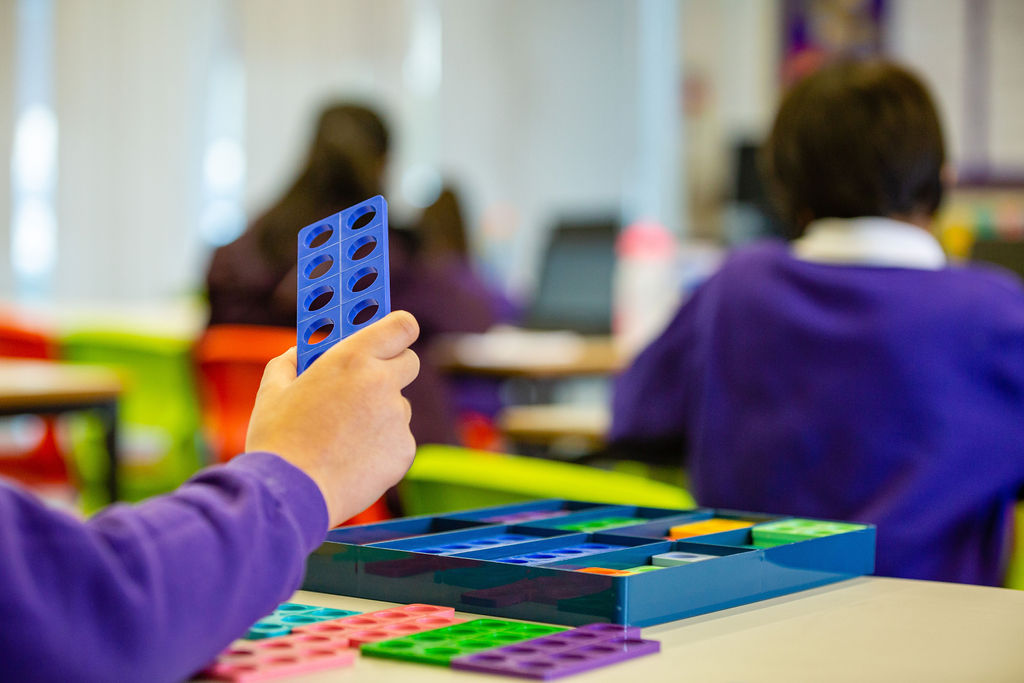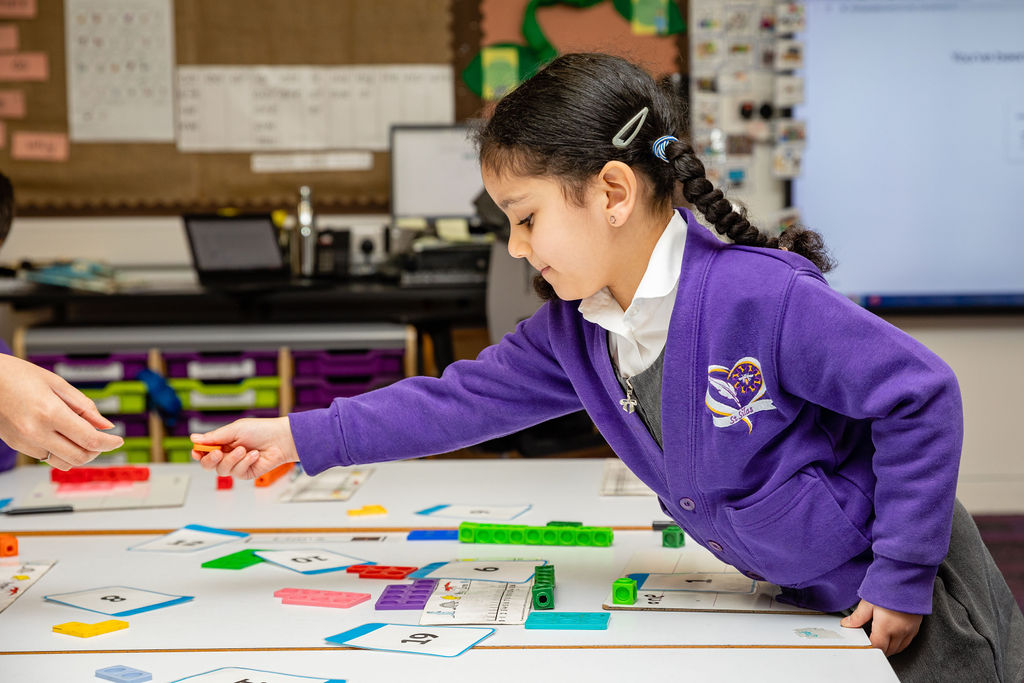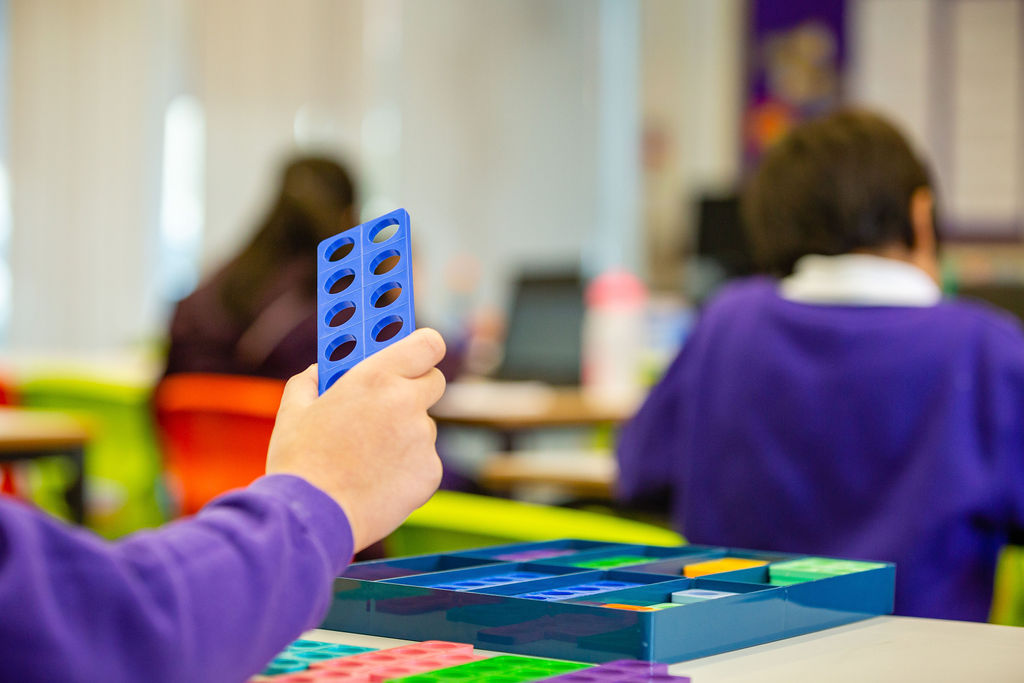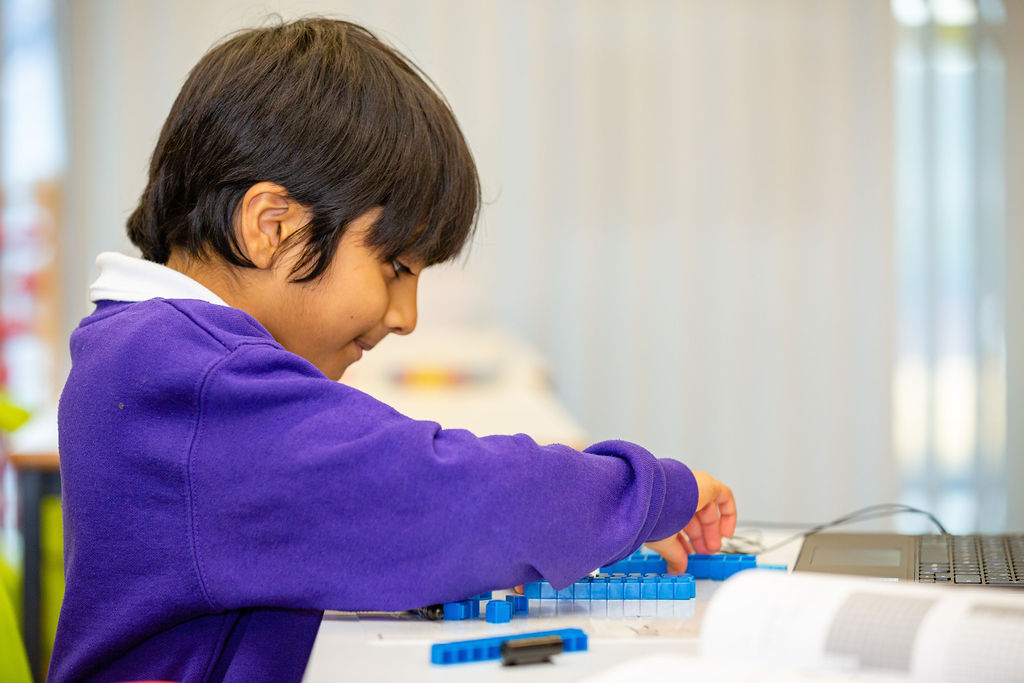
Why do we teach Mathematics?
The National Curriculum identifies Mathematics as, ‘a creative and highly inter-connected discipline that has been developed over centuries, providing the solution to some of history’s most intriguing problems. It is essential to everyday life, critical to science, technology and engineering, and necessary for financial literacy and most forms of employment. A high-quality mathematics education therefore provides a foundation for understanding the world, the ability to reason mathematically, an appreciation of the beauty and power of mathematics, and a sense of enjoyment and curiosity about the subject.’
Aims
The national curriculum for mathematics aims to ensure that all pupils:
- Become fluent in the fundamentals of mathematics, including through varied and frequent practice with increasingly complex problems over time, so that pupils develop conceptual understanding and the ability to recall and apply knowledge rapidly and accurately.
- Reason mathematically by following a line of enquiry, conjecturing relationships and generalisations, and developing an argument, justification or proof using mathematical language.
- Can solve problems by applying their mathematics to a variety of routine and nonroutine problems with increasing sophistication, including breaking down problems into a series of simpler steps and persevering in seeking solutions.
Talking about Maths is important too. Here, our Oracy work interlinks with Maths to enable the children to develop / explain their Mathematical thinking and rationale.
As such, Maths is a subject that increases all children’s life chances, if they are able to meet the aims identified, then they are much more likely to experience success throughout their school lives and beyond.

How do we teach Mathematics?
We deliver our Maths Curriculum by using a Mastery approach. This means that teachers use the 5 big ideas in teaching Mastery Maths, as identified by the NCETM (National Centre for Excellence in the teaching of Mathematics):
We use a range of resources and approaches to teaching and learning in order for us to achieve success for our children and to deliver these 5 big ideas:
Please see our Mathematics Policy and Calculation Policies below:
Mathematics

What do we teach?
Please see our year group overviews below:
Maths Scheme of Work

Assessment
We assess Mathematics in two ways: formative on a daily / weekly basis and also using White Rose tests in Autumn / Spring terms. These assessments / tests are used to inform future planning. We also monitor this test data within school, although the tests are not standardised they do enable us to monitor progress.
We assess summatively in Summer term using NFER tests. These tests are standardised nationally and enable us to benchmark ourselves against a much wider group.
Message from the Subject Leader
I am passionate about Mathematics. In truth, it is a subject that I struggled with when I was at school. When I was in ‘fifth year,’ the olden days equivalent of Year 11, I got a grade D in my mock GCSE. I found the subject to be the most challenging of all the ones that I was doing GCSEs in and my parents decided to pay for me to have a tutor in Maths after my mock result. I was lucky that they could afford to do this, but it did pay off and I got a grade B in my real exam a few months later.
The fact that I did find Maths difficult has driven me to make Maths education for the children at our school the best that it can be. I want every child to achieve their full potential in Maths and know that we can unlock Maths for those who find it difficult too.
Me Ellis
Key Instant Recall Facts
It helps children with their maths if they can remember key facts such as multiplication facts or number bonds. We have created a series of documents to show which facts your child should know by heart in each year group.
Key Instant Recall Facts
Support for Parents
Please see the websites below for help in Mathematics with your child. Each child will have a login that will be provided by their class teacher. Homework will sometimes be set using these websites:
https://play.ttrockstars.com/
https://www.purplemash.com/sch/stsilassbb2
SEND in Maths:
As in line with the principles of Mastery Maths, the majority of children will move on at the same pace as the rest of the class. If a child needs additional support to understand a concept, then this will be done as intervention work prior to the next lesson so as to help them achieve success before tackling the next step in their learning.
From time to time there will be a child in a class who needs an entirely different curriculum as their needs are more complex. In this case, they will access a year group that is below their own year group and their learning may be supported by an SSA. They will not be working on the year group below as this is close to their own year group and with support, they will be able to access aspects of their own year group’s learning. This approach will only be used for children who are accessing the curriculum well below their chronological year group.


